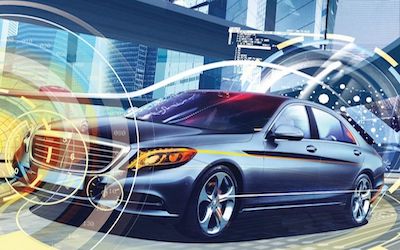PTE考生目前最大的问题之一就是练习题缺乏。除了有限的基本官方书(PLUS,Testbuilder, OG)之外就没有题了。很多英语基础不是很扎实的同学很难找到练习材料。悉尼文波雅思PTE培训学校专门为澳洲,尤其是悉尼、墨尔本的PTE考生准备了适合PTE听力阅读练习的科学60秒。各位PTE同学可以练习PTE听力中的summarise spoken text和PTE口语中的retell lecture,PTE听力口语-科学60秒-Frosty Moss练习记笔记技巧和复述。废话少说,下面开始:
听力内容:
60秒科学节目(SSS)是科学美国人网站的一套广播栏目,英文名称:Scientific American – 60 Second Science,节目内容以科学报道为主,节目仅一分钟的时间,主要对当今的科学技术新发展作以简明、通俗的介绍,对于科学的发展如何影响人们的生活环境、健康状况及科学技术,提供了大量简明易懂的阐释。
This is Scientific American — 60-Second Science. I’m Erika Beras.
Got a minute?
Advocates for self-driving cars love to tout the benefits the cars would bring, such as fewer accidents and less congestion. Another alleged value of being a passenger rather than a driver is more productivity—you could work rather than concentrate on driving. But most people might not spend their newfound free time in self-driving cars whittling down their to-do lists.
That’s according to a study by Michael Sivak and Brandon Schoettle at The University of Michigan’s Sustainable Worldwide Transportation program.
The researchers surveyed people in the U.S., Australia, China, India, Japan and the U.K. And about 62 percent of respondents said self-driving cars would not make them more productive. For one thing, 23 percent of the group said they won’t ride in a self-driving car in the first place. And then there are the people who get motion sickness—they obviously can’t work. Plus, another 36 percent said they’d be too concerned to do anything but watch the road.
The researchers also noted that most trips average 19 minutes—not really long enough to get anything truly substantial done. Or to catch some quality zzzzz’s.
Of course, the level of apprehension people experience in self-driving cars, or about getting into them, may change in the long-run. But this study is another reminder that there’s still a lot to be figured out before automatic autos rule the roadways.
Thanks for the minute for Scientific American — 60-Second Science Science. I’m Erika Beras.
墨尔本悉尼文波PTE原创首发
更多精彩请持续关注微信wenbo_tv3。





